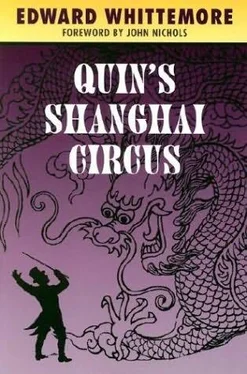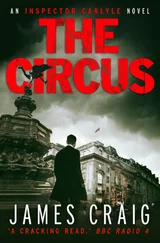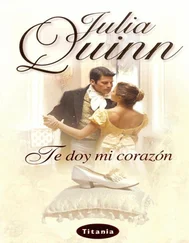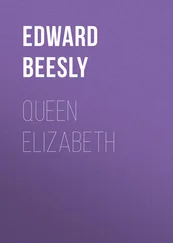Edward Whittemore - Quin’s Shanghai Circus
Здесь есть возможность читать онлайн «Edward Whittemore - Quin’s Shanghai Circus» весь текст электронной книги совершенно бесплатно (целиком полную версию без сокращений). В некоторых случаях можно слушать аудио, скачать через торрент в формате fb2 и присутствует краткое содержание. Жанр: Фэнтези, на английском языке. Описание произведения, (предисловие) а так же отзывы посетителей доступны на портале библиотеки ЛибКат.
- Название:Quin’s Shanghai Circus
- Автор:
- Жанр:
- Год:неизвестен
- ISBN:нет данных
- Рейтинг книги:3 / 5. Голосов: 1
-
Избранное:Добавить в избранное
- Отзывы:
-
Ваша оценка:
- 60
- 1
- 2
- 3
- 4
- 5
Quin’s Shanghai Circus: краткое содержание, описание и аннотация
Предлагаем к чтению аннотацию, описание, краткое содержание или предисловие (зависит от того, что написал сам автор книги «Quin’s Shanghai Circus»). Если вы не нашли необходимую информацию о книге — напишите в комментариях, мы постараемся отыскать её.
Quin’s Shanghai Circus — читать онлайн бесплатно полную книгу (весь текст) целиком
Ниже представлен текст книги, разбитый по страницам. Система сохранения места последней прочитанной страницы, позволяет с удобством читать онлайн бесплатно книгу «Quin’s Shanghai Circus», без необходимости каждый раз заново искать на чём Вы остановились. Поставьте закладку, и сможете в любой момент перейти на страницу, на которой закончили чтение.
Интервал:
Закладка:
A greatcoat stuffed with the debris of life.
There’s a glass paperweight meant to resemble jade, a forged Canadian passport and two forged Belgian passports, a screw-top jar, the Litany of the Saints, a battered movie projector, a secret-bag, layers of sweaters, a cache of animal husbandry documentaries made during the early days of the Russian Revolution, a piece of red flannel tied with string, two bottles of Irish whiskey, a journey that goes south and west from Tokyo and pauses for a snooze in the mountains of the Philippines before returning to Tokyo, a spotlight, an exhibition, the depraved legacy locked behind the smile of the everyday man in kimono, a pushcart, steam rising from a pan of boiling turnips.
Victorian horsehair chairs, cannons captured in the 1905 Russo-Japanese War, a gentle smile, three gas masks, bamboo tubes, flowers of Tokyo, evaporating doorways, materializing cemeteries, midnight tombstones, dead cats, bartered rice, buggered pickles, an autograph, a vegetarian diet that excludes honey and eggs, a coat that buttons the wrong way, cracked No masks and torn No costumes, a piss in the moss, the kimono of the princess, a manuscript never begun, a complete index to the manuscript that therefore lists nothing, again two bottles of Irish whiskey, claws crushing the heads of rodents, turnips again, nothing but turnips for nearly a quarter of a century, a reign that lasts seven hundred years, a collapsed garden wall.
A tea bowl turned three times, a game of Go, koto music, a wall of rotting Cossack horses, a glass eye, headaches, a ball of fluff, a container of ether, a houseboat in Shanghai, a monk, a mirror in a Mukden toilet, the third bottle of Irish whiskey, a fire in Nanking.
A limp, a megaphone and whip and frock coat, again three gas masks, again a spotlight, a ring and a bed, the one-eyed tomb of Semarang and the sure-footed vine of Mindanao, plump shrimp tails, the highwire, little red swinging lights, sawdust, tubas, the shadowy juggler with his torches, the wastes of central Asia.
A pool table, delicate fingers, a sudden laugh, again a ring and a bed, the highbar, the triple somersault.
Cigars and computers and salad dressings, reports, mixed Mongolian grills, steel mills in Borneo, new governments in South America, massage parlors in Africa, bagels and smoked salmon, folding camp chairs, an endless procession of black limousines, a houseboat in Tokyo, pink gin, fogged glasses, neckties, haiku marching music, once more the megaphone and whip and frock coat.
A tattoo of a dragon, sauce flavored with ambergris and phosphorite, the small lamp of a battered movie projector, a photograph superimposed upon another, the fist of knowledge, oysters, laudanum, a pagoda deep in the ground, a mirror in a shrine high above the city.
More oysters, another glass eye but this one from the Boston waterfront, a nurse with a hypodermic of water, a bus ticket good for thirty days’ travel in the United States, seagull soup, another glass paperweight, a life preserver, a jukebox with colored lights, jigglies, frozen tuna fish, a television set, a hunk of rotting meat, a beach by the sea.
Movie magazines and epileptic fits, gloves and hairpieces and empty lipstick tubes, false sideburns and a false moustache, a chow mein whore, shoeboxes.
Korean latrines, icy Manchurian cellars, familiar smells, a breakwater that leads to the dark waters of the bay.
A shoemaker’s son at a shoemaker’s bench, Lapp proverbs and Malabar peppercorns, high hogs, a final three gas masks, a final transformation, love poems in all the languages of the world, a final bottle of iced vodka, a final jar of iced caviar, a final bath in the morning, a final erection at midnight.
And another koto , another gentle smile, another hypodermic but this one for insulin, the Talmud in Japanese, a black spot in the garden.
An end.
The day finally comes when there are no names left on his list, no debris left in his life. He is empty, he has picked himself clean.
He empties out the pockets of his greatcoat and finds only the dragon’s code book, his last possession, that small notebook wherein the alchemist Adzhar recorded the ultimate secrets of a treatise on love. When he has returned this to its rightful owner, as he did with the cross, he will be ready to die.
Now Adzhar has been gone for many years, but there was a Japanese who knew him well, who was a close friend and will certainly receive the code book in his name. Our man is so poor he can’t take the train to Kamakura, he has to walk. Thousands witness this hulking bundle of rags slowly making his way south down the highway. He walks and walks, each step a torment, and at last reaches the town, finds the house, learns to his dismay that Rabbi Lotmann has been dead for twenty years, killed in a fire bomb raid at the end of the war.
A fire bomb raid in Kamakura? Impossible. Some unique fate existed here, perhaps still exists here.
Vague recollections. Dim intimations.
Our man is too exhausted to think clearly. He’s delirious from lack of food and the craving of his powerful addiction. The housekeeper explains the nature of the rabbi’s death and also explains that the house is being maintained as a shrine in perpetuity by the dead man’s adopted son, an operator who is not only the richest gangster in greater east Asia but the third richest gangster in the world.
Weak from the long walk, raving in a whisper, our man faints in the doorway. The housekeeper rushes away to buy smelling salts. After she leaves, almost at once, our man curiously regains consciousness and lets himself into the house.
He is amazed or perhaps not amazed to find the living room filled with heavy silver objects. There is a large menorah, a silver-embossed Haggadah, a silver-embossed siddur, a silver-plated tallith, a silver-plated tsistsis, an unusual tvillin made of silver rather than wood and leather, a heavy solid silver plaque engraved with the legend mene, mene, tekel, upharsin .
What is to be done? Is silver any longer of use to a man who has ascended to heaven in a whirlwind?
Quickly our man gathers up all the silver objects he can lay his hands on and stuffs them into a sack. As payment he leaves behind in a prominent place the secret code book, the keys to the kingdom. They belong to Elijah because he has lived a life that will turn the lock, lived so meekly his push will swing wide the gate.
The sack of loot on his back, our man opens the front door.
A memory.
The holy man whose altar he has desecrated was a diabetic. A diabetic? Dimly there stirs in his tired brain scenes he has witnessed in a locked, shuttered room in Shanghai, even more remote scenes witnessed on rooftops in the Bronx. He makes his way to the medicine cabinet and finds there what he is looking for, the large hypodermic needle used by the rabbi for injecting insulin. He has recalled that before Elijah ascended to heaven he passed on his mantle to his successor.
This then will be the mantle our man receives from the prophet. A hypodermic needle.
He flees. He staggers into the nearest pawnshop and stumbles into the back room, there to empty out his sack. His loathing for what he has done is so great he will accept no more than a ten-thousandth part of the real value of the heavy silver. He leaves sack and silver behind and runs from the pawnshop with his miserable fist of coins.
He buys a cheap valise and stuffs it with bottles of cheap gin. At the railroad station he throws down his few remaining coins and says he wants a ticket down the coast. He will go as far as those coins will take him.
It’s over now and he knows it. He has robbed the grave of the prophet. He intends to sit by the sea until the gin bottles are empty, then piss one final time into the wind and drown himself.
Читать дальшеИнтервал:
Закладка:
Похожие книги на «Quin’s Shanghai Circus»
Представляем Вашему вниманию похожие книги на «Quin’s Shanghai Circus» списком для выбора. Мы отобрали схожую по названию и смыслу литературу в надежде предоставить читателям больше вариантов отыскать новые, интересные, ещё непрочитанные произведения.
Обсуждение, отзывы о книге «Quin’s Shanghai Circus» и просто собственные мнения читателей. Оставьте ваши комментарии, напишите, что Вы думаете о произведении, его смысле или главных героях. Укажите что конкретно понравилось, а что нет, и почему Вы так считаете.












